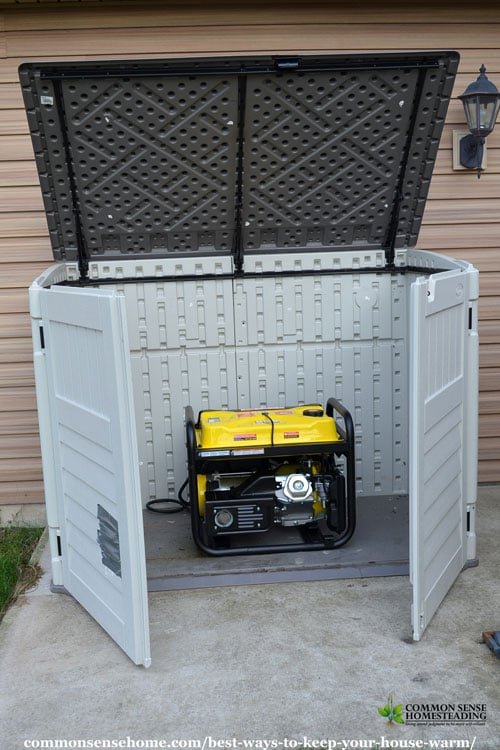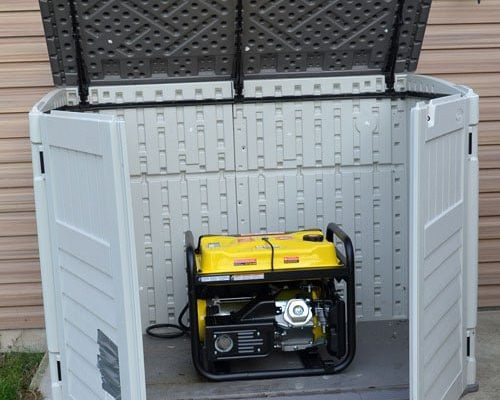
Let’s dive into some practical solutions tailored to your needs. From traditional generators to more modern systems like solar power or home battery storage, we’ll explore the pros, cons, and the workings of each option. You might be wondering, “Which one suits me best?” Don’t worry; we’ll break it all down, so you can make an informed decision that keeps your home powered when it matters most.
1. Portable Generators: The Go-To Option
Portable generators are like the Swiss Army knives of emergency power solutions. They’re versatile, relatively easy to use, and can keep essential appliances running during a power outage. Imagine being able to plug in your refrigerator and a couple of lights while you wait for the grid to come back online. Portable generators typically run on gasoline, which means you’ll need to keep gas on hand.
One common concern is the noise. While some models are quieter than others, a running generator can still be quite loud. That’s where your neighbors come into play—be considerate and check local regulations regarding generator use. Don’t forget to invest in a quality extension cord, too!
These generators can generally power:
- Refrigerators and freezers
- Lights
- Medical equipment
- Chargers for phones and laptops
Considerations for Portable Generators
When choosing a portable generator, think about wattage. What do you need to run during an outage? Calculate the starting wattage (which is higher) as well as the running wattage. Look for generators that have enough output for your necessary devices. It’s often recommended to consider models from reputable brands like Honda or Champion, known for their reliability and performance.
2. Standby Generators: The Automatic Solution
If you’re looking for something more permanent, standby generators might be your best bet. These bad boys are permanently installed outside your home and automatically kick in when the power goes out. Think of them as your home’s silent guardian, always on standby.
Standby generators usually run on natural gas or propane, which means you won’t need to worry about refueling them like you do with portable options. Once installed, they require very little maintenance, aside from occasional checks.
Benefits of Standby Generators
Not only do these generators provide immediate power, but they also power your whole home, or at least critical systems, seamlessly. You won’t even have to think about it when the lights go out. Standby generators can keep everything running, from heating systems in winter to air conditioning in the summer.
These generators do come with a higher upfront cost and need a professional installation. But considering how often power outages occur in some areas, many homeowners find the investment worthwhile.
3. Solar Power Systems: Harnessing the Sun
If you’re eco-conscious, solar power systems offer an innovative solution to emergency power. By harnessing sun energy, you can drastically reduce your dependency on fossil fuels. Plus, many modern solar panels have battery storage options, meaning you can store energy for a rainy (or power outage) day.
The big advantage here is sustainability. You’re not just preparing for a storm; you’re investing in a cleaner future. Solar systems can even help reduce your electricity bill in the long run, making them a dual-purpose solution.
How Solar Power Works in Emergencies
During a power outage, a well-designed solar power system will keep your essential devices running—assuming it’s sunny outside. If you pair your solar setup with home battery storage, you’ll have backup power even when the sun isn’t shining.
It’s important to consider installation costs and local regulations regarding solar energy. Many districts have incentives or rebates, so it’s worth doing your research.
4. Battery Backup Systems: A Quiet Option
Battery backup systems, like the popular Tesla Powerwall, are becoming increasingly popular for home energy storage. Think of them as a high-tech solution for keeping your home powered. These systems store energy during peak sun hours or while the grid is active, then release that power during outages.
The beauty of a battery backup system is its silence and efficiency. Unlike generators, they won’t disturb your household or your neighbors. Plus, they require minimal maintenance—just a regular check on charge levels.
What Can Battery Backup Systems Power?
Battery systems can power:
- Lights
- Refrigerators
- Medical equipment
- Essential electronics
Keep in mind that the duration of power will depend on your usage and the size of the battery. So, if you foresee extended outages, it’s worth considering the capacity of these systems.
5. Choosing the Right Option for You
Now that we’ve covered the main options for emergency power, you might be thinking about which fits your lifestyle best. Here are a few things to consider:
– Usage Needs: What do you absolutely need to keep running during an outage?
– Budget: How much are you willing to spend? Generators tend to be cheaper upfront but can incur ongoing fuel costs.
– Maintenance: Are you comfortable with maintaining a generator, or do you prefer the low-maintenance aspect of solar or battery systems?
– Space: Do you have room for a portable generator or a large standby generator?
By answering these questions, you’ll be better equipped to choose the right emergency power option for your home.
In the unpredictable world we live in, having a reliable emergency power option for your home is essential. Whether you choose a portable generator, a standby system, solar power, or a battery backup, each option brings its unique perks and considerations. The key is to find what fits your needs and budget best.
Remember, it’s not just about having power—it’s about peace of mind. So, take a moment to evaluate your options, plan for any outages in the 19105 area, and ensure that when the lights go out, you’re prepared to keep yours on.
